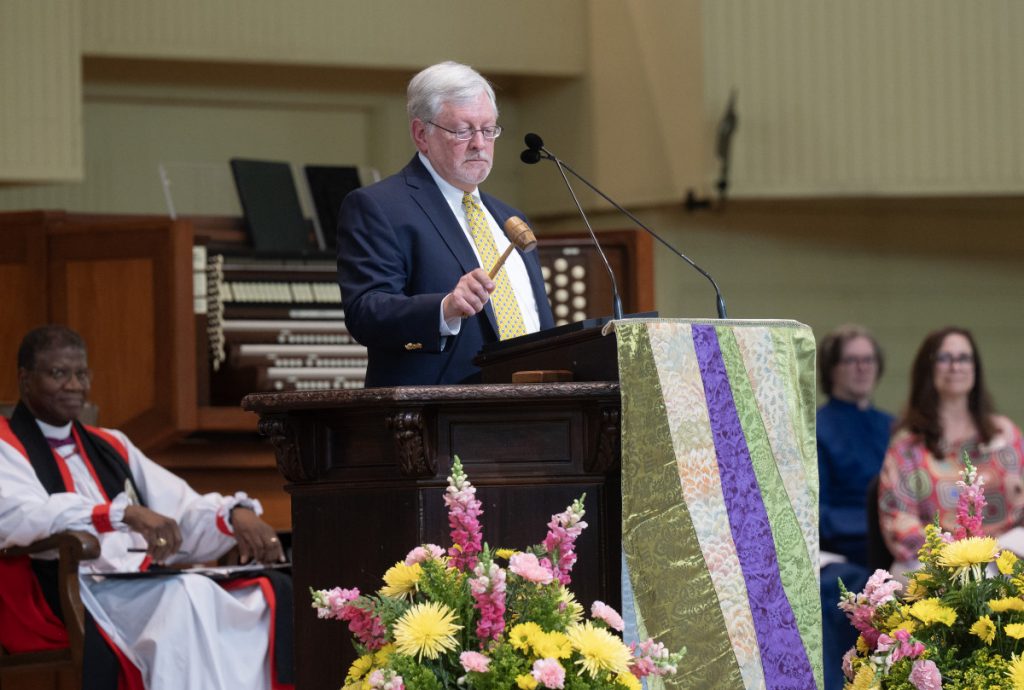
Mary Lee Talbot
Staff Writer
Rebecca Richmond, a Chautauqua writer and one of the founders of the Sandwich Poets at Chautauqua — a precursor to the Chautauqua Literary Arts program of today — in her 1944 poem “To Chautauqua – Moment of Farewell,” wrote: “Sometimes I wish that I would love you less, For when the summer ends and I must go, Almost it is a rending of the soul – You are part of me and I of you.”
It is that love of Chautauqua that feeds many people during the winter and fuels the excitement of arriving on the grounds as the season begins. The Chautauqua Assembly begins and ends with tradition, and the Sacred Song Service is part of that tradition.
At 8 p.m. Sunday, the final Sacred Song Service of the summer will be held in the Amphitheater. The Rt. Rev. Eugene Taylor Sutton, senior pastor for Chautauqua, will preside. Melissa Spas, vice president for religion, and George T. Snyder, trustee for life of Chautauqua Institution, will be the readers.
The Chautauqua Choir will sing under the direction of Joshua Stafford, director of sacred music and Jared Jacobsen Chair for the Organist, accompanied by Owen Reyda, 2025 organ scholar. Stafford creates each Sacred Song Service during the summer season.
Like the first Sacred Song Service of the season, the Sunday evening service will be based on the 1903 Chautauqua Hymnal and Liturgy. A prayer by Thomas A. Kempis will be read as a litany. A statement by Lewis Miller, co-founder of Chautauqua from the introduction to John Heyl Vincent’s book The Chautauqua Movement reminds readers that Chautauqua was founded to be all-denominational and universal as to creeds.
“It was, at the start, made catholic as to creeds; not undenominational, but all-denominational, — a place where each denomination or organizations, as at the great feasts, brings its best contribution which the particular order would develop as a consecrated offering for magnifying God’s word and work; and, when gathered, each to bring its strongest light, and with the lights blending and the rays strengthened and focussed, with square and plumb, with compass and sun-dial, with telescope and microscope, with steam-engine and telegraph, with laboratory and black-board, with hammer and spade, search out the deep and hidden mysteries of the Book,” Miller wrote from Akron, Ohio, in February 1886, fitting as many clauses and creative punctuation into one sentence as possible.
The music in Sunday’s service, from the opening “Day is Dying in the West,” to closing “Now the Day is Over,” and “Largo,” will also include the hymn “Break Thou the Bread of Life,” written by William F. Sherwin and Mary Lathbury for Chautauqua in 1877. The Chautauqua Choir will sing “The House of Faith,” music by Craig Philips and text by Carl P. Daw Jr. and “The Lord Bless You and Keep You,” music by John Rutter and text from Numbers 6:24.
Immediately after “Largo,” Snyder will give the Three Taps of the Gavel address to close the 152nd Chautauqua season. His title is “Did You Notice?”




